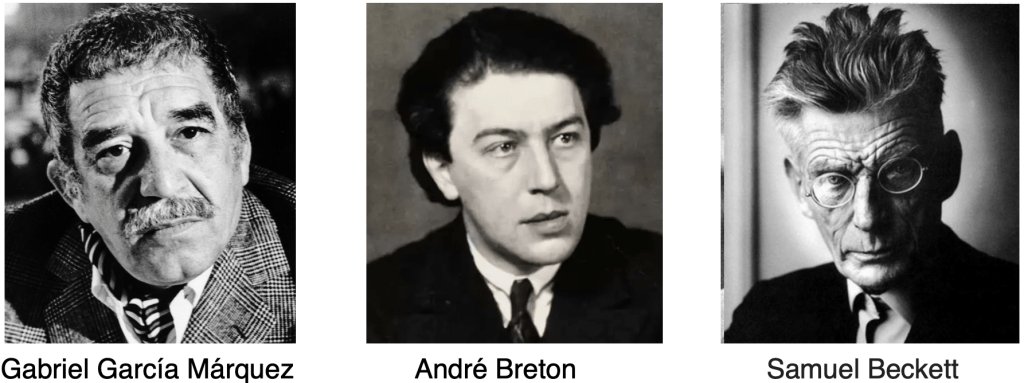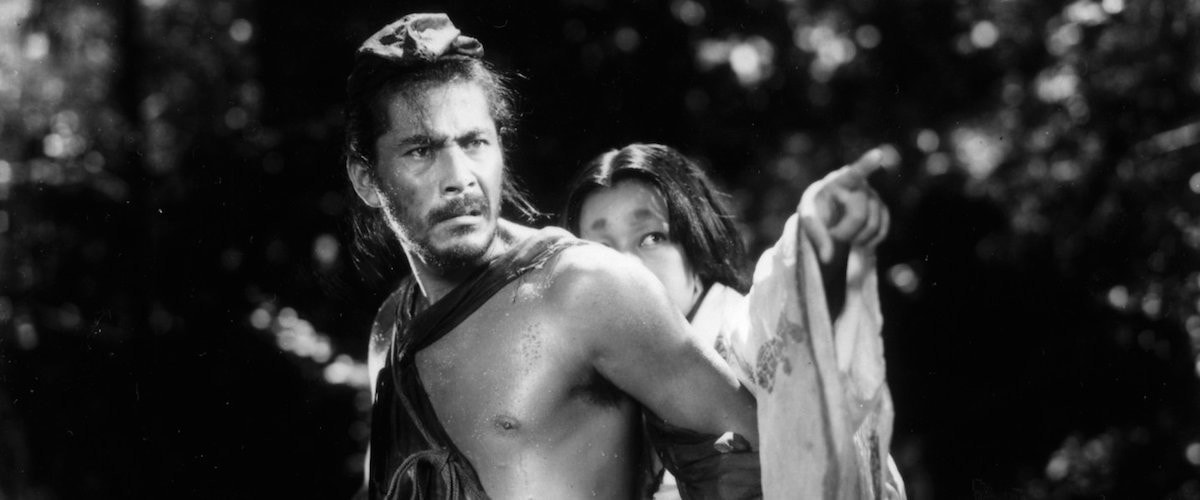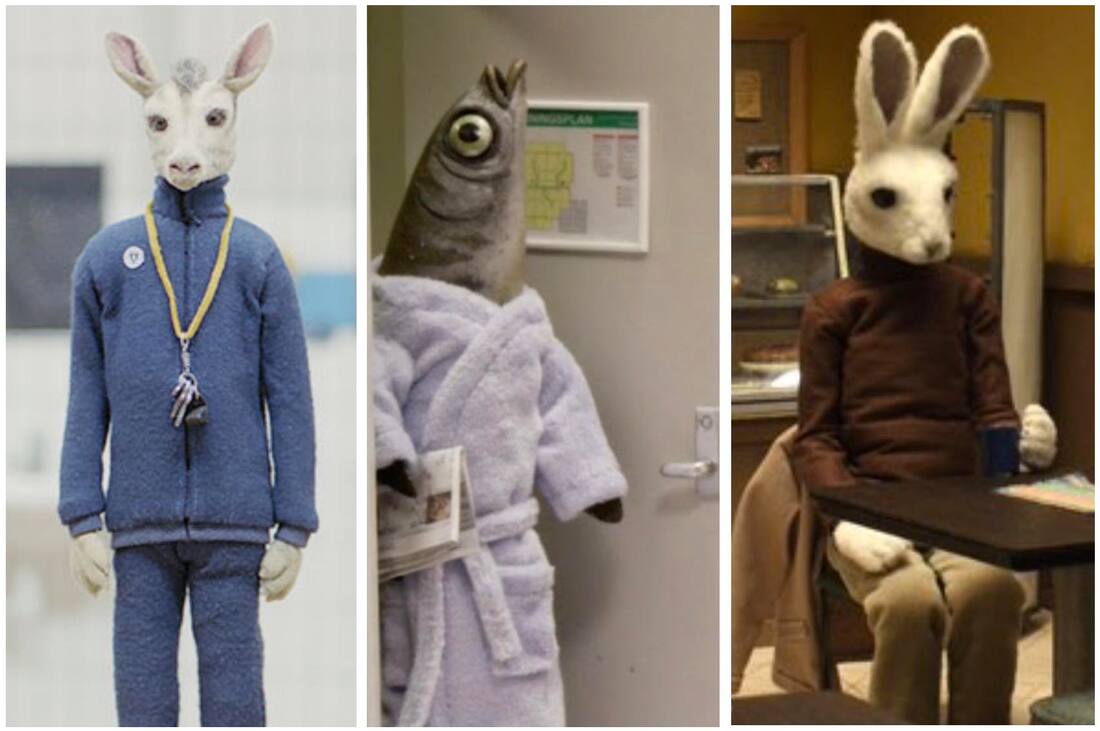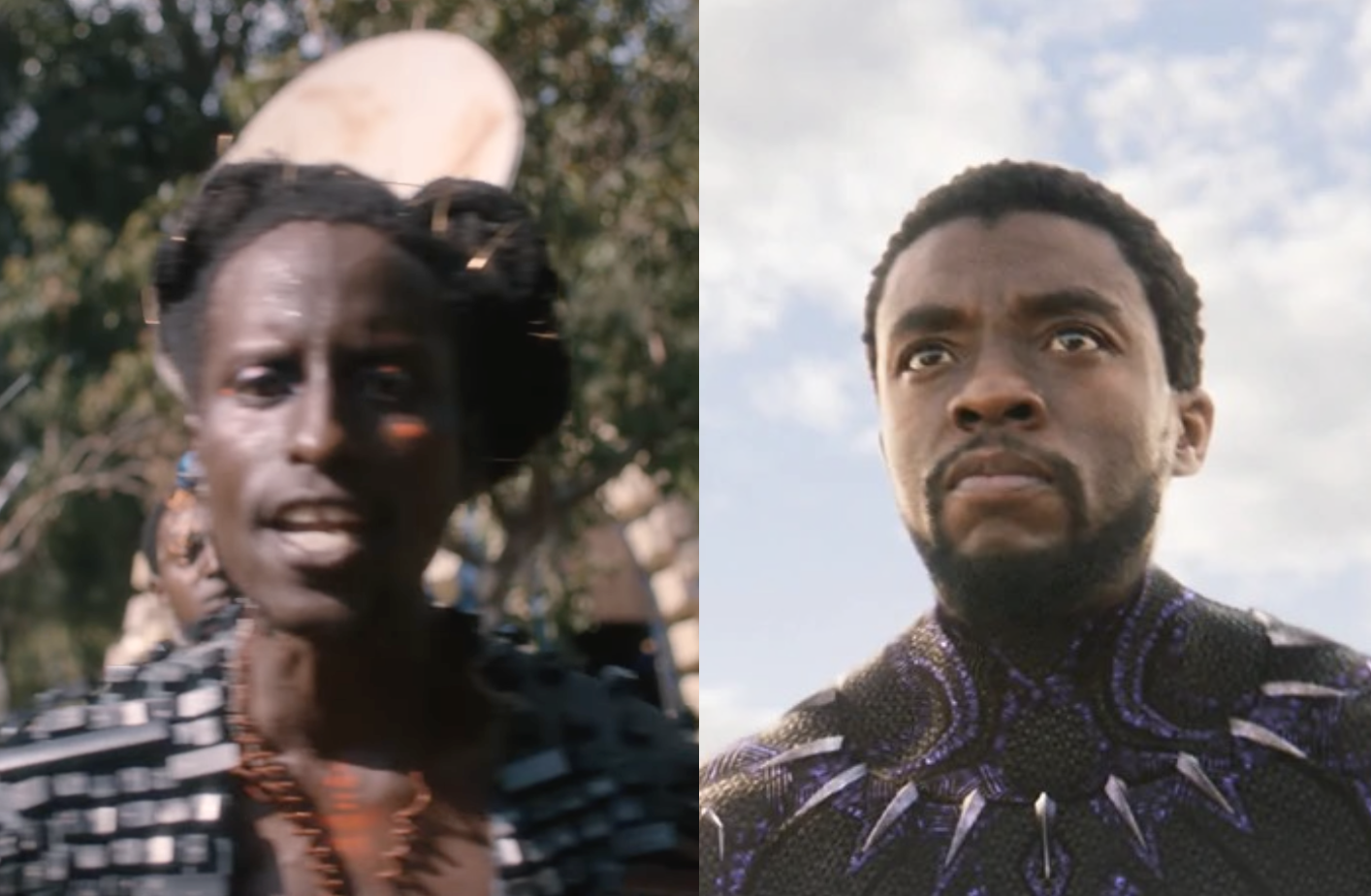
In Defense of Meaning
There is surely an irony in trying to define three words each of which stems from movements that problematized meaning. All three movements recognize a certain hegemony in logic and the rational and resisted being strictly categorized. However, language’s usefulness hinges on shared meaning. As imperfect and temporary as that meaning might be it does not preclude trying to pin down a few elements to help ensure that words remain useful.
This essay is not an attempt to permanently nail down a static definition but to re-infuse some meaning and accuracy into a group of adjectives that are often used to describe films. These words all began as titles of a movement, the surrealists, the theater of the absurd, and magic realism.
Surreal
The word surreal stems from the early twentieth-century art movement called surrealism. One of the central figures of the movement was Andre Breton. He held court with a group of like-minded artists who together forged a passionate desire to dismantle society.
Breton was often asked to define surrealism, but he gave cryptic answers like "psychic automatism in its pure state, by which one proposes to express - verbally, by means of the written word, or in any other manner - the actual functioning of thought” or “The purest surrealist act is walking into a crowd with a loaded gun and firing into it randomly.” These definitions are more provocations than an attempt to clarify anything.
Surrealism as a movement was based on two essential ingredients, psychology, and radical politics, specifically Sigmund Freud and Karl Marx. Surrealists not only wanted to unleash the subconscious but they wanted to destroy the bourgeoisie and modern culture. World War One was the ultimate betrayal of Enlightenment values. Logic, reason, science, and the idea of progress had created a mechanized, industrialized, bureaucratized abomination that swallowed up 40 million lives. The Surrealists saw the destruction of reason and a confrontation with the emotional as the only way out. Un Chien Andalou (1929) is perhaps the most direct and raw example of pure surrealist ideology. It violently confronted the issue with a vicious fervor, but here is the problem, Luis Buñuel, David Lynch, Alejandro Jodorowsky, are all said to be purveyors of surrealism. Is there a definition broad enough to encompass all three filmmakers?

How strictly should we measure other films in reference to the surrealist's original intentions? Mulholland Drive (2001) seems a long way from Un Chien Andalou, but Mulholland Drive does not need to be a completely surrealist film to have surreal qualities. It doesn’t have to be all or nothing.
Mulholland Drive is unsettling, even shocking. It is also intensely emotional. Neither of these is enough in and of themselves to label the film surreal. Mulholland Drive does however get inside your head in an unnerving, destabilizing way. Dreams and reality become indistinguishable, and rational analysis becomes difficult. It is not a political film but it does undermine our sense of what is normal. Part of the surrealist aesthetic is a desire to make the familiar unfamiliar. To short circuit the normal so that a coffee cup or a bicycle can have an uncanny sense of menace and metaphor that we can’t quite place. On this score, Lynch is very skilled. In many of his films objects, people, or situations exude a deeply unsettling aura.
Unlike Lynch, directors like Jodorowsky or Švankmajer dive headlong into surrealism and create outrageous imagery. Jodorowsky’s films do not subtly court the uncanny but they shove the dream world violently into reality where we are forced to reckon with it. Where Lynch uses surreal elements Jodorowsky is a surrealist.

To aid with further description I would exclude films like Tarsem Singh’s The Fall (2006) from being surrealist. The Fall has striking and even dream-like imagery, but it is essentially a fantasy film like The Wizard of Oz. It is a hero’s journey that does not undermine or destabilize its subject or society. Guillermo del Toro’s Pan’s Labyrinth (2006) has a darker narrative and is even overtly political but again, it is a fantasy. The mythical beings and magical trials that Ophelia endures do not undermine our sense of reality or make us uneasy they are colorful representatives of a magical world that help her deal with painful and frightening truths. They may be challenging and frightening but they are essentially constructive forces.

Absurd
The Absurdist movement sometimes referred to as The Theater of The Absurd saw artists like Samuel Becket and Edward Albee writing strange and often confrontational plays. Instead of Marx and Freud, the Absurdists looked to existentialist philosophers like Albert Camus and Jean-Paul Sartre for inspiration. Surrealism was a movement in the 1920s. The Absurdists came later in the 1950s and 60s.
The absurd is fueled by an essential core understanding that human life has no purpose or meaning. This means that as we all construct meaning and suffer and celebrate the events in our lives we fear that the absurdity of our existence will suddenly become apparent. For Sartre, it is like a stalker that can leap out from behind a garbage can when you least expect it.
Absurd narratives do not involve the uncanny. They do not unnerve you. It is more likely that they will make you laugh. It could be argued that clowns are a prime example of the absurd. They exaggerate the ridiculous nature of being human.
In film I would point to John Waters as a master of the absurd. His films are more funny than disturbing but they are frantic and even confrontational. Surrealism reveals psychological undercurrents by digging beneath social facades, Waters stays away from the subconscious and simply takes the surface of our mundane lives as his arena. What seems bizarre is accomplished by simply turning society’s volume knob up to ten. Our pettiness, our obsessions, and our screaming living room fights all get blown into torrential, exaggerated insanity without ever leaving the real world. The characters in Waters’ drama care desperately about pointless, meaningless goals that they never the less hurdle toward with all their might.

Another example of an absurdist approach might be Jean-Pierre Jeunet’s Delicatessen (1991). While slightly more fanciful it too exaggerates its characters by placing them in a desperate situation. We watch them pursue meaningless tasks like endlessly making those little cow cans that moo when you invert them. Another character is knitting a sweater but as quickly as she knits it the other end is unraveled by a little machine that feeds the yarn back to her. Together the old woman and the machine make a pointless existential loop.
Absurdists are often confrontational but they are not pointed or directional in their criticism. They expose our futility and leave it at that. They offer no solution, nor redemption, only a depiction of how ridiculous we look when we imbue our actions with import or meaning.
Magic Realist
Both Surrealism and The Absurd share a hostility toward society. The first sees it as an oppressive facade and the second sees it as meaningless. Magic Realism has a different relationship to society. It still incorporates the political but it is less pointed. It does not seek to directly foment revolution. Where Surrealists want to destroy culture, Magic Realists want to enhance it by injecting humanist imagination.
All three of these movements are grounded in writing but magic realism is perhaps the most literary of the three. In many ways, it was a reaction to writers like Ernest Hemingway and George Orwell who were reducing language, stripping away adjectives, and descriptions, and seeking a bold and direct narrative that plainly rendered what was real. Ironically both Gabriel Garcia Marquez and Isabelle Allende would most likely say that they too were rendering the real, but for them, the real includes ghosts, magic, and poetic reveries that bring color and flavor to their stories.
Magic realism is not meant to be jarring. The supernatural is meant to be blended seamlessly with the natural. Ghosts do not attack people or frighten anyone, they offer advice or sometimes just keep people company. Magic realism isn’t meant to disturb the reader but to enrich the reader’s world.
Setting aside films that were made from magic realist books like Like Water For Chocolate, two films come to mind when thinking of magic realism. Ernesto Contreras’ I Dream In Another Language (2017), and Apichatpong Weerasethakul’s Uncle Boonmee Who Can Recall His Past Lives (2010). In both of these films, supernatural events are presented as part of the natural order of things. The worlds that these characters live in are full of meaning that suffuses their lives with a connection to something poetic and mysterious.
While surrealists were pointedly political Marxists, the Absurdists were only indirectly political. Where both the surrealists and the absurdists were iconoclastic and confrontational, the Magic Realists were optimistic, romantic, and beautiful.

In the end, words have to be allowed to evolve and change. This essay is a rough and temporary assessment of what three terms refer to and have referred to. Words are at their most effective when their definition is narrow but if there is no room for flexibility their specificity can limit their use as well. All three of these adjectives derive from movements that wrestled with the concept of reality making it that much harder to pin them down, but even movements like these need an identity. Without stable reference points, surrealism could not accomplish its destabilizing goals.

If you enjoyed this article click here for more
www.filmofileshideout.com/archives/the-demise-of-the-tripod




[…] Shadows of the Wind presents us with a strange world that is difficult to describe. Surreal would not be accurate, it’s more of an alienated and empty world where reality is fuzzy around the […]
[…] Burial Of Kojo’s narrative draws heavily onmagic realism, as well as Biblical mythology, but Bazawule credits his grandmother’s storytelling style and […]